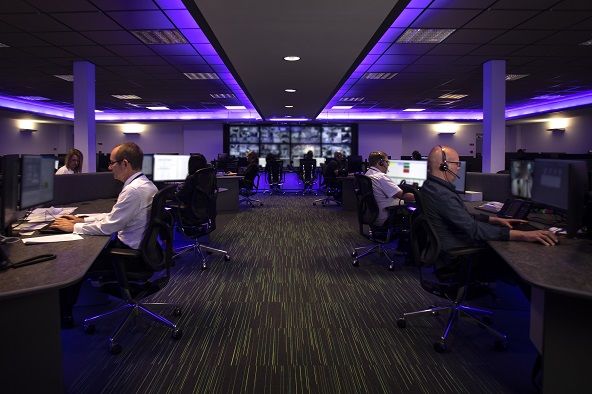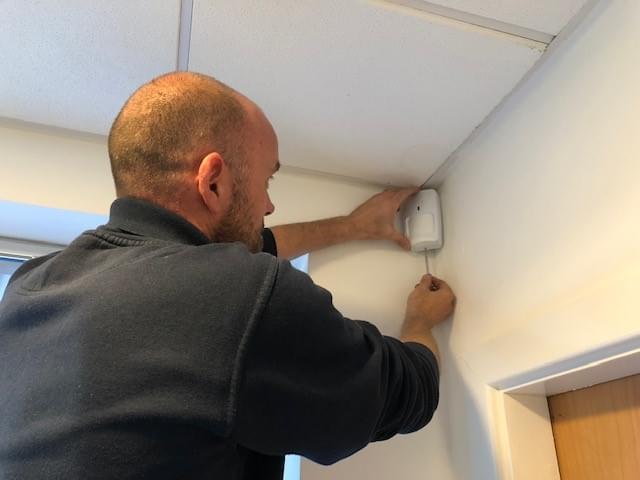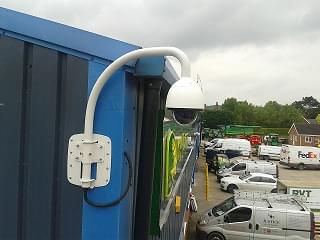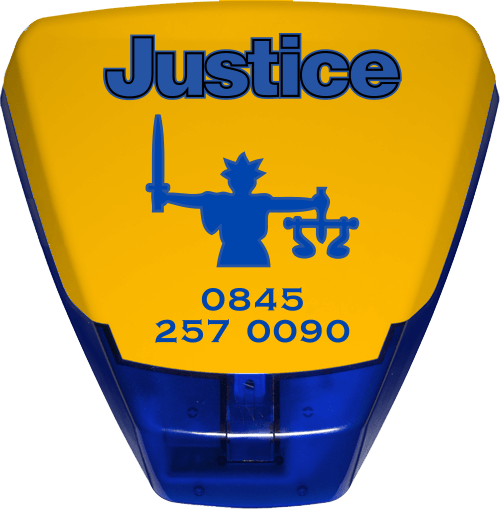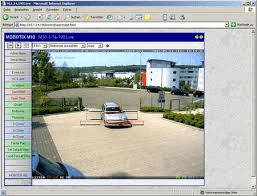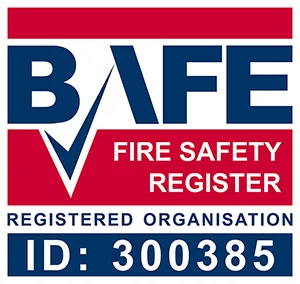Determining the number of security cameras you will need to protect your property – be it your home or business - will depend largely on the size and scope of your premises. Budgetary considerations will also be a key factor.
Residential properties don’t necessarily require quite the scale of monitoring you would expect for a commercial building. That said, depending on the plot size, some homes are likely to need more expansive surveillance than might be the case for a small retail outlet or office.
The numbers of cameras might also be influenced by the crime figures in your area. You can find out online from local police force databases the crime statistics for your locality.
It is always worth bearing in mind that opportunist break-ins are the most common type of burglary, if you are unprotected. Which is why security cameras make such an effective deterrent. A reputable security firm, such as Justice Fire and Security, will be able to advise on the positioning of cameras and also the necessary regulatory signage that you will need to display when you are installing these devices.
Determining How Many Security Cameras You Need
In terms of quantity, knowing what’s required can be quite confusing, especially as most people will have had no prior experience of installing security systems, whether it’s cameras or CCTV. It is not as though there is a “one-size-fits-all” solution.
The priority is to have sufficient camera coverage to ensure you are adequately protected – without splashing out on equipment that is actually surplus to requirements.
Knowing the best type of cameras for your property will help determine the correct number. It isn’t as simple as saying you need X number of cameras per X square feet of space. Various factors will need to be taken into account.
However, the more all-encompassing and flexible your cameras are, the better!
One or two cameras may be all that’s needed in a domestic setting, whereas a business operation may require a large number of CCTV units to monitor external areas, as well as HD surveillance cameras, to capture activity in key areas, such as main entrances.
Where to install cameras on a residential property
It is important to install security cameras in the most vulnerable hotspots. As a rule of thumb, this should include front and rear exits. That may be all the deterrent you need. If a burglar sees a CCTV camera and alarm system has been installed, he is likely to leave your property well alone. Positioning a camera to cover your driveway could be essential, ensuring you can clearly see every vehicle moving in and out. If you have a longer drive, then maybe install a camera at either end.
Depending on what lengths you would wish to go to, you might also want to have a camera keeping a watchful eye on areas where you have valuable items, like garages where cars, bikes and other equipment may be stored.
Where to install cameras in a commercial property
For commercial premises – whether they are warehouses or offices blocks - you would want cameras that will efficiently record activity at the main entrance to the building, providing coverage of the outside, the car park and approach from the road, alerting you to any potential intruders or suspicious activity. In addition, any back or side entrances also need to be covered, especially ground floor access, but also where external stairs may lead to upper floor entry points.
Internally, the main reception area should also be monitored, given that it is likely to be the area of greatest throughput. It would also be a good idea to position cameras near main stairwells. These can be helpful not just for recording activity, but also for accident management and health and safety issues - for instance, if someone took a tumble down a flight of stairs.
Some companies that deal with high value goods or large amounts of cash may choose to position cameras in places to deter staff members from carrying out opportunistic theft.
Other areas that are becoming problematic or a boon for thieves are agricultural and equestrian premises, which contain a lot of high value equipment, such as quad bikes, tractors, horse riding tack, tools and even livestock. These types of premises should seriously consider having an adequate quantity of CCTV cameras.
Consider the type of Security Cameras you are looking to install
There are many different types of security cameras with varying capability. Some have wide-angle lenses that provide broader, whilst others have narrow-angle lenses for monitoring a specific target.
For the most comprehensive coverage, CCTV would be the best option, especially for larger compounds or open areas. That said, they do not always provide sufficient clarity to pick up specific objects and activity. For this reason, when it comes to installing surveillance for main entrances, it may be worth considering equipment that provides better picture sharpness.
Also, whether you are going to use wired or wireless security cameras can determine the numbers of cameras you will need. For wireless security, which transmits data by radio frequency signal, there may be a limit on the number of cameras you can use for seamless monitoring.
What Is Your Security Camera Budget?
Installing surveillance systems all comes at a cost. Knowing how much you have to spend will have a major say in how detailed your security operation will be. The name of the game is to have the maximum possible coverage for the minimum possible spend. It may be necessary to make compromises along the way, but we can discuss this with you during an initial inspection visit, to formulate the most effective approach, in line with your budgetary expectations.
Conclusion
If the whole subject of installing security cameras sounds a bit daunting, don’t be put off. Investing in security cameras can actually be one of the wisest investments you could make – for either your home or business.
At Justice Fire and Security, we have had decades of experience assisting homeowners and business owners with creating cost-effective security solutions. It is very much a numbers game. The most effective numbers of cameras set against an acceptable budget. On both counts, we are here to ensure the numbers stack up!
We hope this guidance proves useful. As specialists in the installation, monitoring and service of CCTV surveillance equipment and security cameras, we can provide all the assistance you need from site review, installation, remote monitoring, along with and service and maintenance.
From our West Midlands base, we have an extensive network of
local offices, handling all manner of commercial and domestic security and surveillance systems for clients throughout the counties
of Shropshire, Staffordshire and Warwickshire, covering Birmingham, Coventry,
Wolverhampton,
Stoke and Tamworth and elsewhere. In the East Midlands, we work across Derbyshire, Leicestershire and Nottinghamshire. Our
South East region handles projects throughout Buckinghamshire,
Northamptonshire and Oxfordshire, whilst our office in the south west offices covers Gloucestershire and Worcestershire.
We also have a big presence in the North West from our base in Cheshire.
If you have any concerns regarding your current commercial or home security arrangements or your existing provider, please call one of our local offices or our main number on 0845 468 0927



